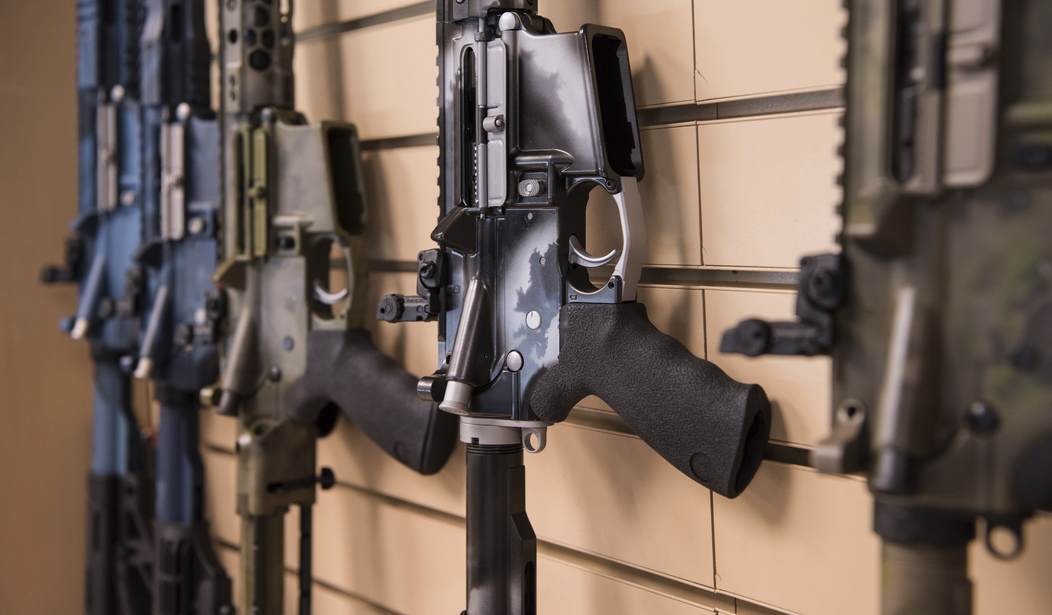Given the makeup of the three-judge panel considering the constitutionality of Illinois’ ban on so-called assault weapons and “large capacity” magazines, I have a sneaking suspicion about what they’ll ultimately decide, but Judge Frank Easterbrook at least feigned open-mindedness during today’s oral arguments, at one point calling the issue an “extremely difficult problem.”
It’s really not that complicated, at least if judges aren’t predisposed towards wanting to find a way to ban guns that are in common use for a variety of lawful purposes. The Supreme Court has said that in order to justify a modern-day ban like the one imposed in Illinois, the state must be able to point to historical analogues that bear a strikingly similar resemblance to today’s prohibitions, and the state of Illinois simply can’t meet that burden. Instead, attorneys for the state have argued that the semi-automatic firearms designated as “assault weapons” aren’t protected by the Second Amendment at all because they’re “unusually dangerous”, and that the state’s ban should be upheld because it’s simply an effort to address an “unprecedented modern concern”; mass shootings.
Judges Frank Easterbrook, Diane Wood and Michael Brennan tussled with the argument that a U.S. Supreme Court decision last summer — and the Second Amendment itself — forbids governments from banning weapons that are “in common use.”Easterbrook asked whether laws against machine guns, following their use in Chicago’s notorious St. Valentine’s Day massacre and other mob hits, would be considered unconstitutional today.“They were especially common in Chicago,” Easterbrook said of weapons like the Thompson submachine gun.Core to Easterbrook’s question was the notion that the Supreme Court decision suggests governments lose the right to ban weapons once they become popular with the general public — something unlikely to occur if governments were to ban weapons before they hit the marketplace.“It’s very troublesome to have a popularity contest decide a constitutional principle,” Wood remarked.
Wood is a Bill Clinton-appointee and a reliable liberal voice on the Seventh Circuit, while Easterbrook has been the author of several opinions upholding various gun control laws in Illinois, including Chicago’s ban on handguns that was struck down by the Supreme Court in McDonald v. City of Chicago. Easterbrook has also previously ruled (pre-Bruen) in favor of Highland Park’s ban on the sale and possession of so-called assault weapons, and just last month reversed a lower court decision granting an injunction against enforcement of the state’s gun and magazine ban. Judge Michael Brennan, an appointee of Donald Trump, appeared to be the most skeptical by far of the three judges when considering whether Illinois’ ban should be upheld, but I think we’re looking at a 2-1 decision in favor of the state of Illinois when the Seventh Circuit decision is released at some point in the future.
That may actually speed up the process of getting this case before the Supreme Court, however. If the state of Illinois loses this round, Attorney General Kwame Raoul would almost certainly play keep-away from SCOTUS and ask the Seventh Circuit for an en banc review. But if the three-judge panel upholds the law in question, the plaintiffs can take their appeal directly to the Supreme Court for review, though the Court may not view the challenge as ripe given that today’s hearing was on the request for an injunction and not a trial on the validity of the law itself, which is still months away.
While gun control activists have been trying to keep 2A cases as far away from SCOTUS for as long as possible, the justices themselves have been turning away every emergency appeal to reach their doorstep since handing down the Bruen decision last year. I would love for the six cases that made up today’s challenge to be the turning point for SCOTUS’s inaction, but I’m not convinced that’s gonna happen. If the Fourth Circuit Court of Appeals issues its long awaited decision in Bianchi v. Frosh (a lawsuit challenging Maryland’s ban on “assault weapons”) before the Seventh Circuit panel releases its own decision on the request for an injunction against Illinois’ law, that would give SCOTUS an initial circuit court split and provide another compelling reason for the Court to step in. I’m of the mind that SCOTUS already has more than enough cause to take up the first “assault weapons” case that reaches the justices, but unfortunately it may take a split to convince four of them that the time is ripe to finally opine on the legality of banning the most commonly-sold rifles in the country.








Join the conversation as a VIP Member